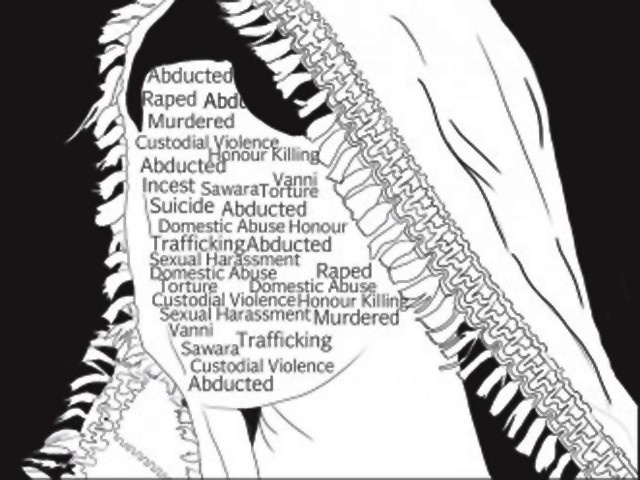Probe into rights violations urged
Elimination of Violence against Women Day observed to create awareness about the brutalities they are exposed to.

Probe into rights violations urged
Talking to The Express Tribune, Chairperson National Assembly’s Standing Committee on Women Development Bushra Gohar said, “No policy has been devised by the government for the rehabilitation of IDPs.” There are numerous cases of rape, women trafficking and violence that take place in conflict areas and remain unreported.
Director Women’s Organisation for Rights and Development (WORD) Aqsa Khan said, “There are many women living miserably in Internally Displaced Persons (IDP) camps across the country.” They do not have money to go back to their native areas and no means to earn livelihoods.
When conditions worsened after the military operation in Bajaur Agency, 35-year-old Tora Kai Bibi decided to leave her home along with her husband and six kids. During their journey, the family got caught in a skirmish. Her husband was shot and died on the spot and Kai lost both her legs. Kai now lives with her two daughters and four sons in Jalozai refugee camp near Peshawar where there is inadequate supply of food and clothes for her and her children.
Mehmooda Bibi, 50, another resident of Bajour and an IDP lives in a rented house in Merozai village Kohat. She complained that there is no availability of potable water in the village and it is difficult for her to get water from nearby hujras and mosques. The village does not even have a hospital and she worries about her daughter-in-law, who is pregnant and they cannot even afford delivery expenses.
Gohar, the chairperson of National Assembly’s Standing Committee on Women Development, said that multi judicial set-ups, weak political will, institutional failure, illiteracy, poverty and society norms are the major reason behind the increase in the cases of violence against women in the country.
She urged the government to conduct a judicial inquiry of the Swat Operation so that the human rights violation cases could be brought to the public’s attention.
The 23-years-old Sana Ansar, a resident of Rawalpindi, was a victim of domestic violence. She was seven months pregnant when she was poisoned by her in-laws over a minor domestic issue. She died on November 20, the fourth day of Eid.
Her mother Azra Bibi said, “Sana’s in-laws would beat her often on minor disputes but she never complained to me because I am heart patient.” They took my daughter to private clinics for abortion several times as they did not want her to become a mother, she added.
Aqsa Khan of WORD said that a resolution was passed by the UN Security Council that addressed the impact of war on women.
The resolution - UN Security Counsel Resolution (UNSCR) 1325 - stressed the importance of women’s equal participation in all efforts aimed to maintain and promote sustainable peace and security. “Unfortunately only meetings took place
on how to implement UNSCR 1325 and nothing concrete
was achieved.”
Published in The Express Tribune, November 25th, 2010.



















COMMENTS
Comments are moderated and generally will be posted if they are on-topic and not abusive.
For more information, please see our Comments FAQ